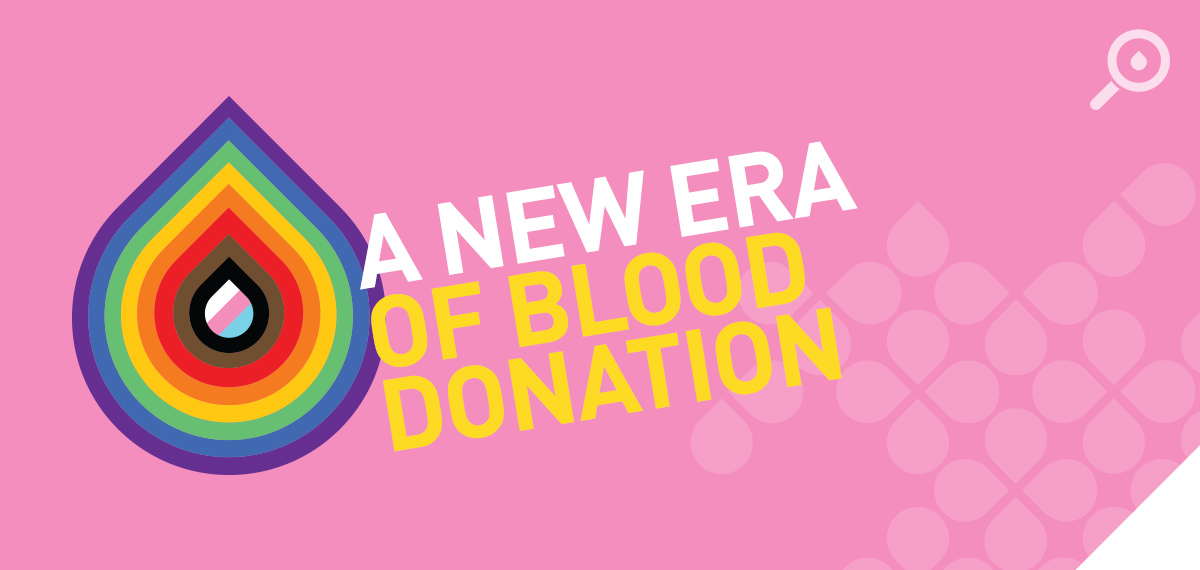
Bloodworks is implementing the new individual risk-based questionnaire on December 6, 2023! This means all donors will be asked the same questions to determine eligibility – regardless of sexual orientation. Previously unable to donate under the FDA’s old deferral? You can now book your appointment for 12/6 and beyond.
Since the 1980s, men who have sex with men (MSM) have been prohibited from donating blood by policy set by the Food and Drug Administration (FDA), the agency that regulates blood donation. In 2015, the FDA reduced the deferral period from a lifetime ban to one year since last sexual encounter. In 2020, the FDA further shortened this period to three months. While each were a step in the right direction, these updates equated identity with lifestyle and still left many people who wanted to donate blood unable to do so.
In May 2023, the FDA approved a new, individual criteria based on current medical science and testing. These changes eliminate outdated MSM-specific requirements and introduce more inclusive eligibility criteria independent of gender or sexual orientation.
When Bloodworks Northwest implements the new criteria by winter of 2023, all potential donors, regardless of gender or sexual orientation, will be asked the same set of questions. Bloodworks is excited to implement these changes and applauds the FDA for recognizing that identity is not equivalent to lifestyle.
Below are a few frequently asked questions about the new criteria.
The criteria will now focus on sexual contact proven to have a higher risk of disease transmission rather than gender or orientation. All potential donors will be asked whether, in the three months prior to their date of donation, they have:
Anyone who has had sexual contact with a new partner or more than one partner and who has had anal sex in the past three months is at increased risk for transmitting human immunodeficiency virus (HIV) and other infectious diseases and is deferred for three months.
Based on current guidance from the FDA, individuals taking preventative HIV medications (such as PrEP or PEP) are still deferred. Available data suggests that the use of PrEP or PEP may delay the detection of HIV in screening tests for blood donations, potentially resulting in false negative results in infected individuals. The risks must be carefully evaluated and approved by the FDA before this deferral can be lifted. Ensuring the safety for blood recipients remains challenging given the lack of sufficient data and the difficulty conducting ethical and effective clinical studies in this area. We support ongoing studies assessing the impact of PrEP on donor testing.
For the most up-to-date information on medication deferrals and other eligibility requirements, please visit Bloodworksnw.org.
Individuals who are not eligible to donate to the community blood supply may still be able to participate in lifesaving research through Bloodworks’ Research Donor Program. When you donate blood for research, you contribute to scientific knowledge that may help future patients and lead to new medical breakthroughs.
Tell Us What You Think!